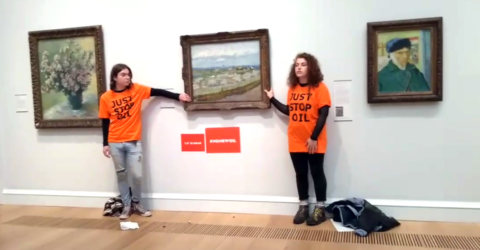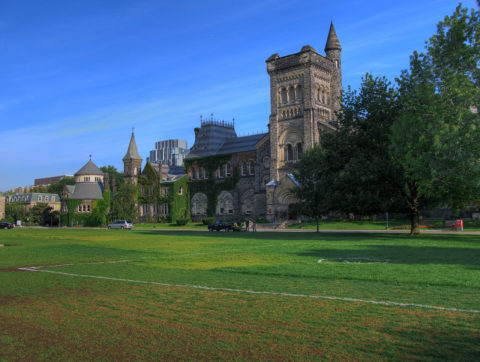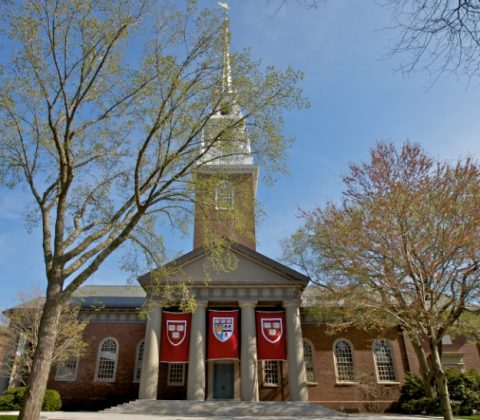Despite the term being used frequently and ostentatiously, clear definitions are rarely volunteered. That’s the first warning sign.
As you say, “social justice” entails treating people not as individuals but as mascots and categories. And judging a person and their actions based on which Designated Victim Group they supposedly belong to and then assigning various exemptions and indulgences depending on that notional group identity and whatever presumptuous baggage can be attached to it, with varying degrees of perversity. And conversely, assigning imaginary sins and “privilege” to someone else based on whatever Designated Oppressor Group they can be said to belong to, however fatuously, and regardless of the particulars of the actual person.
Which is to say, “social justice” is largely about judging people tribally, cartoonishly, and by different and contradictory standards, based on some supposed group identity, which apparently — and conveniently — overrides all else. It’s glib, question-begging and instantly pernicious. Morality for the mediocre. As you say, viewed rationally, it’s something close to the opposite of justice. And yet, among our self-imagined betters, it’s the latest must-have.
In much the same way, “equity” — another word favoured by both educators and campus activists — is defined, if at all, only in the woolliest and most evasive of terms. And which, when used by those same educators and activists, seems to mean something like “equality of outcome regardless of inputs.” Inputs including diligence and punctuality. And that isn’t fair either.
David Thompson, commenting on “Everything It Touches”, davidthompson, 2019-04-22.
November 19, 2023
November 13, 2023
Carefully trained and shaped hollow people
At Ricochet, David Foster talks about how today’s university students have become … hollow:
I’ve been writing for years about the rise of toxic ideologies on America’s college campuses – totalitarian, anti-Israel, outright anti-Semitic – but still have been surprised by what has happened in these places since October 7. We need to discuss the reasons why it’s gotten so bad.
A few days ago, someone republished an essay, written in 2016, by a professor who has taught at several “elite” colleges. Excerpt:
My students are know-nothings. They are exceedingly nice, pleasant, trustworthy, mostly honest, well-intentioned, and utterly decent. But their brains are largely empty, devoid of any substantial knowledge that might be the fruits of an education in an inheritance and a gift of a previous generation. They are the culmination of western civilization, a civilization that has forgotten nearly everything about itself, and as a result, has achieved near-perfect indifference to its own culture. It’s difficult to gain admissions to the schools where I’ve taught – Princeton, Georgetown, and now Notre Dame. Students at these institutions have done what has been demanded of them: they are superb test-takers, they know exactly what is needed to get an A in every class (meaning that they rarely allow themselves to become passionate and invested in any one subject); they build superb resumes. They are respectful and cordial to their elders, though easy-going if crude with their peers. They respect diversity (without having the slightest clue what diversity is) and they are experts in the arts of non-judgmentalism (at least publically). They are the cream of their generation, the masters of the universe, a generation-in-waiting to run America and the world.
And when someone has devoted the first 18 years of their lives in large part to jumping through hoops in hopes of making a good impression on some future college admissions officers … and then, in many cases, having to get good ratings from professors whose criteria are largely subjective … that someone is unlikely to develop into a person with a strong internal gyroscope. Quite likely, they are likely to be subject to social pressures and mass movements.
Someone at X said that the Cornell student arrested for making threats against Jewish students was probably just trying too hard to fit in and win approval of his peers and took it a step too far. My view is that there’s no just about it … the desire to fit in and win approval is very often the reason why people commit evil acts. I’m reminded of something CS Lewis said: “Of all the passions, the passion for the Inner Ring is most skillful in making a man who is not yet a very bad man do very bad things“.
The above sentence is from a talk that Lewis gave at King’s College in 1944. Also from that address:
And the prophecy I make is this. To nine out of ten of you the choice which could lead to scoundrelism will come, when it does come, in no very dramatic colours. Obviously bad men, obviously threatening or bribing, will almost certainly not appear. Over a drink, or a cup of coffee, disguised as triviality and sandwiched between two jokes, from the lips of a man, or woman, whom you have recently been getting to know rather better and whom you hope to know better still — just at the moment when you are most anxious not to appear crude, or naïf or a prig — the hint will come. It will be the hint of something which the public, the ignorant, romantic public, would never understand: something which even the outsiders in your own profession are apt to make a fuss about: but something, says your new friend, which “we” — and at the word “we” you try not to blush for mere pleasure — something “we always do”.
And you will be drawn in, if you are drawn in, not by desire for gain or ease, but simply because at that moment, when the cup was so near your lips, you cannot bear to be thrust back again into the cold outer world. It would be so terrible to see the other man’s face — that genial, confidential, delightfully sophisticated face — turn suddenly cold and contemptuous, to know that you had been tried for the Inner Ring and rejected. And then, if you are drawn in, next week it will be something a little further from the rules, and next year something further still, but all in the jolliest, friendliest spirit. It may end in a crash, a scandal, and penal servitude; it may end in millions, a peerage and giving the prizes at your old school. But you will be a scoundrel.
So yes, the passion for approval has always existed. But I feel sure it is much stronger, or at least has fewer countervailing forces, among people who experience today’s college admissions race and its eventual fulfillment.
The students about whom the professor wrote in the essay linked above have not only been encouraged to devote their time to hoop-jumping, they have also been told again and again that their country and their society are evil – that their ancestors were evil, and their parents are probably evil as well. And that practically all aspects of culture more than five years old, whether traditional songs and folktales or classic movies, are harmful and certainly unworthy of study except for purposes of deconstructing their bad examples. And, of course, relatively few of these students are influenced by or have seriously studied any traditional religion.
October 29, 2023
“Citizens of the World, Unite! You have nothing to lose but your illusions!”
Sarah Hoyt addresses the people who think of themselves not as Americans, Canadians, Brits, or Germans, but as “Citizens of the world”:
One of the funniest conceit of our age has to be the idea that the sophisticated and “bien pensant” are “citizens of the world”.
I was profoundly amused that Alvin Toffler fell for his in his last book I read sometime in the 90s. Keep in mind that, despite everything else, I believe his Future Shock is brilliant and explains a lot of life in the US in the last fifty years. (Note in the US. I’m not sure about the rest of the world. And I could explain why, but it would sidetrack us a lot more than this.) However the book about how the most powerful were the ones who had the most information (arguable) also pushed the “citizens of the world, not a country” thing as being the one for most powerful people.
I was amused because, though I agree this is the CONCEIT of most self-styled international elites, it is also in practicality, a load of stinking Hooey. (Or as we call it around here, #2 son’s pre-school teacher. Yes, that really was her last name.)
Part of the reason the “elites” believe themselves multinational or “citizens of the world” is oikophobia. They believe themselves to have risen above their co-citizens in their lands of origin, who are … well, in their minds, stupid and uneducated, which is a way to say “less rich” than the “elites”.
Therefore, in the same way that the nobility of old had more in common with other nobility from other lands than with their own country, they think they are a caste set aside and by reason of existing or having money inherently superior to all those who are loyal in and interested in their homelands.
Part of it is the belief that “nationalism” is bad and it led to WWI and WWII. Having been taught that (at this point it, drank it with mother’s milk) the richest and “best” (Most expensively) educated want to get as far away from that as possible, and be at a level when they’re free from that irrational passion, since it’s their conceit that they can rule “impartially” and from above for the good of all.
The problem with it is that not only is none of it true, but they are in fact both more provincial and less well educated than their countrymen. And also that what they aspire to is not only impossible, but really easy to manipulate.
So, the long war of the 20th century was not because of nationalism. In fact, the only explanation I have found for its being assumed to be so is that the international socialists who dominated intellectual discourse for the rest of the century despised the fact that, against their theory, workers of the world didn’t unite, but rather rallied to defend their homeland.
However, if you do a deep dive into the reasons for the first war, ignoring the opinions of those writing about it — which I did, because I was profoundly unsatisfied with the reasons given and none of it made sense — the war’s causation was attempts at internationalism. yes, the internationalism wasn’t of the “supra-national, pseudo worldwide” type (Actually the mask worn by Russian national imperialism) but of the “extended noble family trying to grab the entire world” type. But it was still internationalism, with all the problems of internationalism. (More on that later.)
And the current elites are not “better educated” and don’t rise above much of anything. In fact the world-renowned establishments most of them attend take so many “legacy” and “endowed an entire specialty” students, not to mention “admitted because diversity of skin color or origin” that their meritocratic requirements (I.E. knows or gives a damn about the subject), might be lower than your average state university. Also, once admitted, these people are guaranteed to graduate. Or at least will, barring some particularly egregious violation of code of “everybody knows”.
[…]
But more importantly, these “Citizens of the world” have no clue how their country is constituted, nor how many miles of miles and miles with the occasional house there are in this country. Or that each state has a different culture. Or –
In fact, these people who by and large don’t mix with local populations have a vague idea that the country has a lot more cities/apartments than it does, and that people act more compliant than they do. Because like Europeans, what they know about America is what they see in movies, not realizing movies are made by people like them and are feeding their assumptions back to them.
They also have a vague idea most of the country is easily led, because of course the only reason to disagree with them is that we’re being lied to by extremely persuasive evil people. (That it never occurs to them this might be happening to them, is a measure of [their] lack of self awareness.) Hence their reason to try to get Trump. Because without his evil persuasion, we’d be fully on board with their crazy-cakes insanity.
As for the European elites, I don’t know. I used to hobnob with them, in the sense that I tended to hobnob with the over-educated which were, definitionally, better off than I, but it’s been a minute. However, judging from that and what I see now, my belief is they’re not really “citizens of the world” so much as citizens of their homeland which they secretly believe should rule all nations due to the “nationality” — race/breed being obviously superior.
What I do know is that there is no such a thing as a citizen of the world, no matter the level of self delusion that induces people to believe they are such.
We are all members of our culture. While we can believe everything about our culture is bad and evil, we still project it on everything else we see. Therefore, you know, well to do Americans keep believing criminals and terrorists don’t really exist, and must be decent people driven to extremes by need or oppression. (The results of these beliefs would be hilarious, if they didn’t more or less break everything.) Heck, they keep believing the LAZY or lacking ambition don’t exist, and if people aren’t working hard to succeed it must be because of a terrible condition. (Look up “Bee sting” theory of poverty sometime.)
When the various international elites meet abroad, they each read in the other what they themselves would do, but don’t actually understand each other beyond vague fashion sense, and spending money like water.Ultimately their entire attempt to be “international” seems to consist of an idea that if they just become the people of the song “Imagine” and don’t believe in or care about anything, they can lead people better.
They are wrong because it’s not only impossible to divest yourself of all passion and interest (well, without offing yourself or doing a lot of drugs) but also because it’s impossible to totally divest yourself of your basic culture. (You can acculturate, but that involves a lot of work, and ACQUIRING another culture, which defeats their purpose. The “citizen of the world” culture doesn’t exist, beyond some shibboleths like “humans are killing the Earth” and “The proles are really stupid, eh?”). MORE IMPORTANTLY, even if they managed it, that wouldn’t make them impartial or able to lead anyone to utopia. What it would make them is very, very people-stupid and unable to realize why certain people do certain things, and others don’t. Or why certain countries are the way they are.
In fact, to the extent they’ve managed to shed their culture and replace it with Marxism, all they’ve done is become an unreasoning cult, unable to realize the population isn’t in fact exploding — because people lie in census, and so do nations — but also that there is not only no necessity but no benefit in “eating bugs”.
October 7, 2023
“Many people who hold ‘luxury beliefs’ … are oblivious to the consequences of their views”
Rob Henderson, guest-posting at The Free Press, illustrates several recent examples of well-connected people holding what he coined as “luxury beliefs” being suddenly introduced to the real-world consequences of their beliefs:
Recently, two high-profile supporters of “justice reform” were murdered.
At 4 a.m. on Monday, Ryan Carson, a 32-year-old social justice and climate change activist, was walking with his girlfriend in Bedford–Stuyvesant, Brooklyn, when he was stabbed to death by a stranger. Only a few hours earlier in Philadelphia, activist and journalist Josh Kruger was shot and killed in his home.
And two Democratic lawmakers who voted to “redirect funding to community-based policing reforms” have been recent victims of violent crime.
On Monday night, blocks away from the Capitol in Washington, D.C., Congressman Henry Cuellar was carjacked by three armed men. (The lawmaker survived the incident unscathed.) In February, Angie Craig was attacked in an elevator at her apartment building in Capitol Hill. A homeless man demanded she allow him into her home to use the restroom, then he punched her and grabbed her around the neck. She escaped after throwing hot coffee on him.
Of course, these people did not deserve harm because of their support for soft-on-crime policies. But I’ve long argued that many people who hold “luxury beliefs” — ideas and opinions that confer status on the upper class, while often inflicting costs on the lower classes — are oblivious to the consequences of their views. Support for defunding the police is a classic example.
Luxury beliefs can stem from malice, good intentions, or outright naivete.
But the individuals who hold those beliefs, the people who wield the most influence in policy and culture, are often sheltered when their preferences are implemented.
Some online commenters have said that my luxury beliefs thesis is undermined by these tragic events, because the victims were affluent and influential — and they still suffered the consequences of their beliefs.
But the fact remains that poor people are far more likely to be victims of violent crime. For every upper-middle-class person killed, 20 poor people you never hear about are assaulted and murdered. You just never hear about them. They don’t get identified by name in the media. Their stories don’t get told.
October 5, 2023
From Hilaire Belloc’s sailboat to your nearest international airport terminal
The most recent review at Mr. and Mrs. Psmith’s Bookshelf considers Hilaire Belloc’s The Cruise of the “Nona”:
Late in the May of 1925, around midnight, Hilaire Belloc climbed into a tiny boat and put out to sea so that he would have some time to think. The sea gives ample time to think, especially if like Belloc you disdain the use of a motor. Some wag once jested that sailing is like being at war: long stretches of boredom punctuated by moments of abject terror. I suppose in some sense that’s correct, but give me the boredom of the sailboat any day over the boredom of the trench, the boredom of the cubicle, the boredom of endless doomscrolling.
Sailing is productive boredom, and seems unusually well calibrated for causing the mind to wander in interesting or delightful or just plain ridiculous directions. Maybe it’s the stimulating effects of the wind in your face and the smell of salt in the air, or maybe it’s the weird altered state of consciousness that comes from staring at the ocean. I think it’s because sailing is the human condition in miniature. It places you perfectly-balanced on a knife’s edge between agency and helplessness, and in so doing it both spurs the mind to activity and gives it space to relax and reflect.1
[…]
Anybody who’s travelled extensively in the third world has seen the modern version of this. There’s nothing intrinsic to being a reformer or a liberalizer that makes you an agent of American power, and yet … there’s a better than even chance that you are. After a while these people all blend together — the idealistic students, the LGBT activists, the NGO staffers, the embassy employees recruited from amongst the locals. They come from a hundred nations, from every conceivable race and religion, and yet something invisibly and inexorably molds them all into the same shape, like iron filings lining themselves up in the presence of a powerful magnet.
Soon they have American souls, and divided loyalties to match. The local regime panics and views them as an internal enemy, which only furthers their alienation from their motherland and their flight into the bosom of Global America. Most empires rule primarily though influence, not coercion, and this class of people is one of America’s most powerful weapons for maintaining and extending its hegemony.
A related phenomenon is the awful sameness that is slowly taking over the whole world. Perhaps your cruise ship docks at a dozen ports over the course of its journey, and every one of them looks exactly the same — the same tiki bar with the same sign, the same shops selling the same ornamental kitsch probably all made in the same factory. You aren’t visiting a place, you’re visiting a psychic manifestation of the Buffetverse, another outpost of Margaritaville, a Potemkin seaport with frozen daiquiris. You all know what I’m talking about. We make fun of it all the time, because cruise ships are for chuds. But it doesn’t just happen with cruise ships.
The cancer usually starts in an international airport. Form follows function, so it’s superficially reasonable that every airport on earth should look and feel exactly the same. But the real reason is that it follows in the wake of the kinds of people who fly into those airports, praising the broadening effects of foreign travel whilst terraforming everything they touch until it resembles the “arts district” of a midsize American city, replete with distressed wood finishes, gravid with craft beers. Real foreignness would cause these people to recoil in shock, or to demand a peacekeeping intervention. It’s not unusual for the imperial functionary class to be parochial, but what’s surreal about ours is how they combine the blinkered innocence of a farm boy with an ideology of weary cosmopolitanism.
None of this was as far along when Belloc took his little cruise, but the seeds had been planted, and he could feel in his bones that something horrible lay across the horizon. So he fights it the only way he knows how — by noticing and celebrating everything distinctive and local and weird about every place he visits. No island is too small for him to mention by name and recall a ghost story or two associated with it. No village is too commonplace for him to remark on the habits, physiognomy, and vices of the people who live in it. It’s the same spirit as that which animates Chesterton’s essay on cheese, but applied to a hundred hamlets and fishing ports, a paean to the regional diversity and distinctiveness that was already slipping away.
1. Oh hey, it’s the focused-mode and diffuse-mode of cognition! The best way to think deeply about anything is to toggle between them.
September 28, 2023
North Korea’s special train for “Dear Leader”
In The Critic, Peter Caddick-Adams discusses the North Korean leader’s special train, used to transport Kim Jong Un to destinations within North Korea and further afield to Russia, China, and other rail-accessible destinations:
It was pulled by two heavy locomotives. Next an armoured anti-aircraft wagon. After the baggage car came the leader’s steel-plated Pullman, followed by a command coach containing a conference room and communications centre. Connected to them, the 22-man security detail travelled in their own rolling stock. Beyond was a dining car, two coaches for guests, and of all things a bathing wagon, then a second dining car. Bringing up the rear were two sleeping cars, a press wagon for the news hounds, another baggage car and finally another anti-aircraft wagon. The coachwork was of the finest materials, hardwoods and high-grade leather, armour-plated, and bristling with guns and radio antennae. Outside in all weathers, day and night, other protective guards swept along the tracks.
There was something charmingly old fashioned about the decision of Kim Jong Un, leader of North Korea, to travel by train to meet his fellow dictator, Vladimir Putin. Over here, even when buffered by a railcard, Network Rail can sometimes fail spectacularly as an ambassador for this effortless mode of transport. Yet, we forget how important journeying by train was and remains. Important figures frequently opt for the smooth clickety-clack over air or road for their expeditions. The method is discreet, away from prying eyes, yet connected to a nationwide network that avoids congestion. Passengers can wine and dine, sleep, relax, study, converse and think. Rail lines are easy to guard, whereas the boulevards are full of threatening traffic and potential ambush points. Franz Ferdinand, Reinhard Heydrich, Charles de Gaulle and John F. Kennedy found this out to their cost between 1914 and 1963. Fatally in three out of four cases.
Some leaders have a phobia about flying. Stalin was one, which was why the only summit meetings he attended, at Tehran, Yalta and Potsdam, were ones connected to Moscow by rail. Perhaps President Putin, a known fancier of custom-built rolling stock, will now fear a weird kind of Karma for having arranged the eternal flight of his former chef, Yevgeny Prigozhin. The president has several trains, each containing an identical office to those in his state dacha, the Kremlin and St Petersburg. All look the name, making it impossible for the viewer, and potential assassin, to know where he is. Maybe his long-distance travel plans will be dictated by iron roads from now on?
[…]
The North Korean’s father, Kim Jong Il, hated taking to the air, instead relying on his old green-and-yellow-liveried rolling stock to convey him around his hermit kingdom. Loaded with extravagant foods, fine wines and attended by glamorous staff, the elder Kim used it on the last state visit of a North Korean to Russia in 2002. “It was possible to order any dish of Russian, Chinese, Korean, Japanese or French cuisine,” remembered one journalist. “Live lobsters were taken to stations along the route, with cases of Bordeaux and Burgundy”. However, the size, opulence and weight of this upmarket rolling McDonald’s restricted its speed to a graceful 40mph. Kim Senior’s Great Continental Railway Journey took one month. Michael Portillo, eat your heart out.
Paranoid about their personal security, the Kim family have traditionally relied on around 90 special carriages, usually made into three trains. The first handles advance security; the next carries the Kim entourage; whilst the last houses bodyguards and other personnel. The middle train, with its wall-mounted lighting, beds, sofas and armchairs reupholstered in “tasteful” reddish-pink leather (I know), was the one in which the current Kim lounged on his way to summits in Beijing and Hanoi, and travelled south in 2019 to meet President Trump in the Korean Demilitarised Zone.
The recent state visit of Kim aboard the twenty-hour Pyongyang to Vladivostok Express, no stops, should give us pause for thought. With him travelled officials closely connected with his weapons development and military science teams, and his younger sister, Kim Yo Jong. In addition to being the regime’s propagandist-in-chief, she acts as gatekeeper to her overweight, chain-smoking brother, who became leader after the sudden death of their father in 2011. Kim’s North Korean Night Mail carried a significant assembly of his regime’s inner circle.
July 12, 2023
“[E]lite colleges are machines for laundering privilege”
Scott Alexander ponders the reasons our elite universities operate as they do:
We could think of “the best college” as a self-fulfilling prophecy; for whatever reason, one college has gotten a reputation as the one whose signal is most valuable. Everyone naturally tries to get in there; if they fail, they go to the college with the next-best reputation, and so on. The system is stable; the “best” college will keep its reputation (since it gets the best students) and the best students will always want to go to the best college. If, as Matt’s son suggests, all the Ivies started accepting the worst students instead, an Ivy degree would soon become a signal that you’re bad, and employers would stop respecting it.
I heard a fascinating variation of this hypothesis from Matt Christman of Chapo Trap House: elite colleges are machines for laundering privilege.
That is: Harvard accepts (let’s say) 75% smart/talented people, and 25% rich/powerful people. This is a good deal for both sides. The smart people get to network with elites, which is the first step to becoming elite themselves. And the rich people get mixed in so thoroughly with a pool of smart/talented people that everyone assumes they must be smart/talented themselves. After all, they have a degree from Harvard!
The most blatant form of this obfuscation: suppose you own a very successful family business. You can leave your son your fortune, you can leave him the business, you can leave him your mansion, but you can’t (directly) leave him an aura of having deserved all these things. What you can do is make a $10 million donation to Harvard in exchange for them accepting your son. Your son gets a Harvard degree, a universally-recognized sign of being a highly meritorious person. Then when you leave him the business, everyone will agree he deserves it. Who said anything about nepotism? Leaving a Harvard graduate in control of your business is an excellent decision!
This happens a little, but I think it mostly isn’t this obvious. More often the transactions are for abstract goods: prestige, associations, favors. The Maharaja of Whereverstan sends his daughter to Harvard so that she appears meritorious. In exchange, Harvard gets the credibility boost of being the place the Maharaja of Whereverstan sent his daughter. And Harvard’s other students get the advantage of networking with the Princess Of Whereverstan. Twenty years later, when one of them is an oil executive and Whereverstan is handing out oil contracts, she puts in a word with her old college buddy the Princess and gets the deal. It’s obvious what the oil executive has gotten out of this, but what does the Princess get? I think she gets the right to say she went to Harvard, an honor which is known to go mostly to the meritorious.
People ask why Harvard admissions can still be bribed or influenced by the rich or well-connected. This is the wrong question: the right question is why they ever give spots based on merit at all. The answer is: otherwise the scheme wouldn’t work. The point of a money-laundering operation is to take in both fairly-earned and dirty money, then mix them together so thoroughly that nobody can tell which is which. Likewise, the point of a privilege-laundering operation is to take in both fairly-earned and dirty privilege, then stamp both with a Harvard degree. “Fairly-earned privilege” means all the brilliant talented ambitious youngsters admitted on the basis of their SAT scores and grades and impressive accomplishments; “dirty privilege” means the kids of various old-money aristocrats, foreign potentates, and ordinary super-rich people. Colleges mix them together, with advantages for both groups.
Is this good or bad? It’s good insofar as it provides a justification for making some elite positions dependent on merit and accessible to anyone, but bad insofar as it helps defend and obfuscate the ones that aren’t. It’s good if you think it’s good for all the elites (meritocratic and otherwise) to know each other and be on the same page; it’s bad if you don’t want them to be (maybe because it helps them oppress people more efficiently).
I expect that without such a system the elites would do their own thing without any concession to merit whatsoever – so maybe it beats the alternative.
June 27, 2023
“People’s patience in the face of the daily elitist provocations of Just Stop Oil is nothing short of Herculean”
The virtue-signalling lunatics of the various Extinction Rebellion sub-groups depend far more than they realize on the patience and tolerance of ordinary Britons who are just trying to get on with their daily lives. Wealthy, highly educated, privileged scions of the well-connected may very quickly learn that the well of tolerance they’re drawing from can run dry extremely quickly. Brendan O’Neill says even some of the movers and shakers of the donor class are starting realize the dangers their protest foot soldiers are running:

“Just Stop Oil Courtauld Gallery 30062022” by Just Stop Oil is licensed under CC BY-SA 4.0 .
So even one of Just Stop Oil’s wealthy donors is tiring of its classist stunts. Trevor Neilson, a co-founder of the Climate Emergency Fund, which has pumped money into Just Stop Oil, says the eco-irritants’ funereal, road-blocking marches for Mother Earth increasingly come off as “disruption for the sake of disruption“. You have “working people that are trying to get to their job, get their kid dropped off at school [and] survive a brutal cost-of-living crisis”, he says, and then along comes a “pink-haired, tattooed and pierced protester standing in front of their car”. It pisses people off, he said.
He’s not wrong. Anyone with eyes in their head can see that Just Stop Oil, and its mother movement Extinction Rebellion, is riling the workers of Britain. Imagine you’re trying to get to work to earn a crust in tough times and up pops a privately educated, possibly non-binary loon with multi-coloured hair to tell you in a voice breaking with juvenile emotion that Judgement Day is coming. The fainthearts of the liberal media are always aghast when an angry scaffolder or stressed trucker drags one of the green hysterics off the road, but I’m blown away by the restraint of the British public. People’s patience in the face of the daily elitist provocations of Just Stop Oil is nothing short of Herculean.
It is “counterproductive”, says Mr Neilson, to have pink-haired sons and daughters of privilege inconveniencing workers during a “brutal” economic downturn. Again, he’s not wrong. The class-war streak in eco-activism is undeniable. Many Extinction Rebellion types are descendants of money. Writer Harry Mount calls them “Econians”, a green twist on “Etonians”. They’re the “public-school boys and girls who rule the wokerati world”. A survey of 6,000 XR activists who brought London to a halt in April 2019 found they were “overwhelmingly middle-class [and] highly educated”. Anyone who walked through London that month will have heard “Cut carbon emissions!” being cried in cut-glass tones and understood right away that our great city was under siege by vengeful aristocrats still smarting from the Industrial Revolution.
June 25, 2023
Workers will be forced to stop working to salve the consciences of university-educated elite wankers
Brendan O’Neill on the Climate Goblin’s latest stunt in Sweden:
Picture the daughter of an opera singer preventing working-class men from doing their jobs. A young woman so well-connected that she probably has presidents on speed-dial physically blocking truck drivers from doing what they do. A child of privilege gathering with her similarly comfortable pals to stop working people from working.
Well, shorn of all the fact-lite bluster about “saving the planet”, that’s exactly what Greta Thunberg’s latest eco-stunt adds up to. The pint-sized prophetess of doom is back in the headlines. This time for getting arrested in Malmo harbour in Sweden, where she and other members of the End is Nigh cult have been holding a sit-down protest to stop oil tankers from leaving and delivering their life-giving cargo to the good people of Sweden and beyond.
The photographs from this temper tantrum disguised as a political protest tell a fascinating tale of the classism and narcissism in green politics. In the middle of the road are the smug-looking youths. One has green hair. Others sport beanie hats. None has ever driven a truck, clearly. Their banners speak of defending Earth from man’s evil burning of the toxic sludge of oil. And in the background are the supposed agents of this evil – the truckers; working men idly standing by their tankers while the world’s media get shots of Greta looking sad for Gaia.
What an apt snapshot of the hierarchy of virtue in what passes for radical politics today. Working-class people reduced to background actors, non-player characters, in a drama feverishly focussed on the jumped-up angst of the privileged. Working men as mere backdrop to the eco-neuroses of the comfortably off. In the moral universe fashioned by eco-influencers and their legion fawners in the political and media elites, the irrational fears of the upper-middle class carry more weight than the living standards of the working class.
It’s a story we see repeated across every act of eco-agitation today. In the UK, the plummy activists of Just Stop Oil, all called Poppy or Edred, block roads and prevent builders, scaffolders, deliverymen, mums and others from carrying out their essential work. The fightback of working men against this imperious imposition on their right to earn a living – witness scaffolders pushing eco-irritants out of the road – has been heartening to see. As a worker at Smithfield meat market in London put it a few years back when Extinction Rebellion types stormed in to speak up for animal rights or something, why should I allow this “happy-clappy mob” to stop me from being “able to pay my bills”?
June 16, 2023
Blackadder at 40
Ed West remembers his first encounter with the brilliant, devious, and hilarious Edmund Blackadder:
What do these famous figures from British history all have in common? Elizabeth I, George III, George IV, Victoria and Albert, the Duke of Wellington, Dr Samuel Johnson, Sir Walter Raleigh, Sir Douglas Haig, Richard III, er Richard IV, William Pitt the Younger, William Pitt the Even Younger …
They’re all, of course, characters in the greatest tale of our island story, a giant rollercoaster of a comedy in four sizzling chapters, one that was first shown 40 years ago today.
I was probably always going to love history — my dad was obsessed with it — but Blackadder helped imprint the idea that the past can be one great black comedy. History is funny because people’s behaviour is often quite irrational, or spiteful, or motivated by petty reasons that contrast with their high-minded principles — and no doubt we will seem the same to future generations, too.
That was the whole idea behind Blackadder because, as creator Richard Curtis points out in a documentary screened tonight on Gold, he’s “a modern person in the stupidity of ancient times”.
Yet when the idea was first proposed by Curtis and Rowan Atkinson, they were advised that there are two sitcom premises that can never work — shows set in heaven and hell, or those in historical settings. And Blackadder was lucky to survive its first season.
Atkinson and Curtis had met at Oxford, going on to work together on Not the Nine O’Clock News, where they’d met producer John Lloyd. The two men were inspired by Fawlty Towers, but were also determined to avoid any comparison with John Cleese and Connie Booth’s great creation, so decided on a setting as far removed from a south coast hotel as possible.
Aired on 15 June, 1983, The Black Adder was quite lavish. There were location shots in places like Alnwick Castle and huge amounts spent on costumes and horses. Curtis says that one of the hats Atkinson wore was worth more than he was paid for writing the episode. It featured such big names as Brian Blessed and Peter Cook, the godfather of alternative comedy whose presence granted the show its place in the apostolic succession. But, while the first series has its moments, it was flawed; the original Blackadder was a weasel-like and pathetic figure, and less clever than his sidekick Baldrick. The comedy didn’t exactly work.
I was fortunate enough to encounter the second series, set in Elizabethan England, before I saw any of the first series. The original has its funny moments, but Ed is quite correct that it’s less than the sum of its parts. Brian Blessed steals every scene he’s in (as always), and Peter Cook’s portrayal of Richard III is great. The rest … is kinda funny if you know a bit of the history. Thankfully, there was more to come.
Blackadder II aired at the start of January 1986, and had a much smaller budget and a simpler set up — and it was far, far funnier, the protagonist no longer a conniving weasel but a court sycophant with Baldrick and Percy as comedy punchbags.
“Well, it is said, Percy, that civilised man seeks out good and intelligent company, so that through learned discourse he may rise above the savage and closer to God. Personally, however, I like to start the day with a total dickhead to remind me I’m best.”
(Fans of comedy shows who quote the lines endlessly can become quite tedious but, well, tough.)
Or: “The eyes are open, the mouth moves, but Mr. Brain has long since departed, hasn’t he, Percy?”
Towards Baldrick he is somewhat more indulgent, telling him that “Thinking is so important“.
“I’ve been in your service since I was two and a half my Lord,” his dogsbody protests upon being thrown out: “Well that is why I am so utterly sick of the sight of you.”
Elton also thought the medieval era to be too squalid and wanted Season 2 set in the “sexier” Elizabethan era (and indeed Edmund’s outfit is rather sexy, as Percy might put it).
May 14, 2023
The life of the publishing world, fifty years ago
I point out things that prove that the past is a foreign country often enough that I have a blog tag for that purpose. When I first entered the work force, the conditions Ken Whyte describes for employees and managers at a publishing company weren’t all that uncommon (although they were already edging toward the endangered species list):
Fifty years ago, when Richard Charkin […] began his career in the book trade, telephones were wired to desktops and editors (male) wrote their letters and memos in longhand, turning them over to women in the typing pool who knocked them out on carbon paper because the publishing world was slow to photocopiers.
Employees smoked at their desks and drank at lunch. Men wore suits and ties and hats; women long skirts. Living wages were paid and even mid-level jobs came with a car. It was not uncommon for people to spend their whole careers at a single company.
Charkin started at Pergamon Press, an Oxford-based scientific publisher. It held an annual Miss Pergamon contest, essentially a beauty pageant for female employees. The winner received a titled sash, cloak, crown, and the opportunity to greet VIP visitors at company events. Pergamon was considered a progressive company for its time. Needless to say, this was before the dawn of the HR department. Also before marketing and IT departments, but publishers did have guilds, members of which met to discuss business at the pub.
In the mid-1970s, Charkin moved from Pergamon to Oxford University Press, which had traditions of its own. For instance, fortnightly editorial conferences were held at 11 a.m. on Tuesdays (but not in summer when everyone was off on extended vacations). Editors attended in robes and sat around an enormous table. In front of them were inkwells filled with fresh ink.
Charkin worked out of OUP’s Ely House offices in Mayfair. Tea ladies pushed trolleys down the corridors once in the morning and again in the afternoon, dispensing drinks and biscuits. There were three dining rooms on the premises: “one in the basement for all staff, which provided hearty and generously subsidized fare, while on the second floor there was an officers’ dining room, reserved for editors and middle managers, where meals were prepared by a fine chef and the drinks were free. At the very top of the building was the publisher’s dining room, which was exclusively for the use of the head of the London office … and his guests. The food here was sourced from Jackson’s of Piccadilly and the wine list was excellent, with the cellar being overseen by a senior manager at OUP whose job involved spending at least a month in France every year researching and ordering directly from vignerons.”
Class distinctions were rigid enough that two sets of bike racks were required, one for editors, the other for printers. There were a lot of printers: OUP still manufactured its own books and made its own paper, that very thin but indestructible variety once common in Bibles.
You’ll be shocked to learn that Oxford University Press, in operation since 1478, was in deep financial trouble by the 1980s.
In Toronto, this sort of thing was common in the bigger, long-established firms like banks, insurance companies, and even the major grocery chains (the Dominion head office facilities were reportedly top-notch in their day). I imagine it was even more the case in places like New York and Chicago.
May 13, 2023
The original cargo cults
Theophilus Chilton on the origins of the term “cargo cult” and how it mirrors the thinking of so many progressives about “white privilege”:

Ceremonial cross of John Frum cargo cult, Tanna island, New Hebrides (now Vanuatu), 1967.
Photo by Tim Ross via Wikimedia Commons.
Many of us are familiar with the metaphor of the “cargo cult”. The term itself was coined by the famous physicist Richard Feynman (who, ironically, didn’t actually use the term the way he had described it) in a speech he gave about transparency and integrity in science. Briefly, the phenomenon of the cargo cult was observed in the South Pacific during World War II. Pacific Islanders would observe the Americans building runways and control towers, and soon after airplanes full of supplies would land and disgorge their contents of goodies. The islanders would build their own bamboo mockups – runways, towers, even bamboo headsets for the “controllers” – expecting that planes full of food and medicines would come to them as well. Of course, none ever did.
Ultimately, cargo cults rested on a form of magical thinking, on the failure to understand the fundamental reasons for why a phenomenon was taking place. This led to a miscomprehension about how one could obtained the desired benefits. It’s essentially a crude form of philosophical nominalism, where the form and appearance exist without grasping any of the underlying fundamental reality.
This misunderstanding is almost predictable when dealing with a culture that practices some form of primitive polytheism. In most cultures, the ritual — the outward performance of gesture/action/song to petition the gods — must be done exactly the same way as the last time … or the magic doesn’t work. For the islanders whose lives were thrown into utter chaos by the arrival of allied troops on their island, because they could see for themselves that the foreigners’ rituals worked: the food, clothing, trade goods, unfamiliar artifacts just poured on to the island once the ritual airfield was constructed. This is a vastly powerful magic that the islanders would be willing — and were willing — to devote vast efforts to learn for themselves. I quoted Bret Devereaux at length on this point.
In many ways, the current progressive obsession with “white privilege” is essentially the same kind of thinking. For progs and professional PoCs, white “privilege” – access to the benefits of high civilisation obtained through high trust civil society, philosophy, science, technology, and all the rest – is just something that happened, something which white people lucked into without any merit or ability on their part. It could just as easily have happened to anyone else, hence it’s “unfair” that whites get all the benefits of what their ancestors laboured to build.
The cargo cult aspect is essentially what the leftist appropriation of Western history and the invasion of our societies is about – because anyone could have done the West, anyone can keep the West going. White, western Europeans and Anglos aren’t really necessary and since people (like runways and bamboo control towers) seem superficially similar, they can be considered interchangeable so that more pliable replacement populations can be brought in to keep the lights on while yet going along with the globalist program.
The plight of Africa in post-colonial times was discussed here.
May 6, 2023
QotD: The luxury beliefs of the leisure class
Thorstein Veblen’s famous “leisure class” has evolved into the “luxury belief class”. Veblen, an economist and sociologist, made his observations about social class in the late nineteenth century. He compiled his observations in his classic work, The Theory of the Leisure Class. A key idea is that because we can’t be certain of the financial standing of other people, a good way to size up their means is to see whether they can afford to waste money on goods and leisure. This explains why status symbols are so often difficult to obtain and costly to purchase. These include goods such as delicate and restrictive clothing, like tuxedos and evening gowns, or expensive and time-consuming hobbies like golf or beagling. Such goods and leisurely activities could only be purchased or performed by those who did not live the life of a manual laborer and could spend time learning something with no practical utility. Veblen even goes so far as to say, “The chief use of servants is the evidence they afford of the master’s ability to pay.” For Veblen, butlers are status symbols, too.
[…]
Veblen proposed that the wealthy flaunt status symbols not because they are useful, but because they are so pricey or wasteful that only the wealthy can afford them. A couple of winters ago it was common to see students at Yale and Harvard wearing Canada Goose jackets. Is it necessary to spend $900 to stay warm in New England? No. But kids weren’t spending their parents’ money just for the warmth. They were spending the equivalent of the typical American’s weekly income ($865) for the logo. Likewise, are students spending $250,000 at prestigious universities for the education? Maybe. But they are also spending it for the logo.
This is not to say that elite colleges don’t educate their students, or that Canada Goose jackets don’t keep their wearers warm. But top universities are also crucial for inculcation into the luxury belief class. Take vocabulary. Your typical working-class American could not tell you what “heteronormative” or “cisgender” means. But if you visit Harvard, you’ll find plenty of rich 19-year-olds who will eagerly explain them to you. When someone uses the phrase “cultural appropriation”, what they are really saying is “I was educated at a top college”. Consider the Veblen quote, “Refined tastes, manners, habits of life are a useful evidence of gentility, because good breeding requires time, application and expense, and can therefore not be compassed by those whose time and energy are taken up with work.” Only the affluent can afford to learn strange vocabulary because ordinary people have real problems to worry about.
The chief purpose of luxury beliefs is to indicate evidence of the believer’s social class and education. Only academics educated at elite institutions could have conjured up a coherent and reasonable-sounding argument for why parents should not be allowed to raise their kids, and that we should hold baby lotteries instead. Then there are, of course, certain beliefs. When an affluent person advocates for drug legalization, or defunding the police, or open borders, or loose sexual norms, or white privilege, they are engaging in a status display. They are trying to tell you, “I am a member of the upper class”.
Affluent people promote open borders or the decriminalization of drugs because it advances their social standing, and because they know that the adoption of those policies will cost them less than others. The logic is akin to conspicuous consumption. If you have $50 and I have $5, you can burn $10 and I can’t. In this example, you, as a member of the upper class, have wealth, social connections, and other advantageous attributes, and I don’t. So you are in a better position to afford open borders or drug experimentation than me.
Or take polyamory. I recently had a revealing conversation with a student at an elite university. He said that when he sets his Tinder radius to 5 miles, about half of the women, mostly other students, said they were “polyamorous” in their bios. Then, when he extended the radius to 15 miles to include the rest of the city and its outskirts, about half of the women were single mothers. The costs created by the luxury beliefs of the former are bore by the latter. Polyamory is the latest expression of sexual freedom championed by the affluent. They are in a better position to manage the complications of novel relationship arrangements. And even if it fails, they have more financial capability, social capital, and time to recover if they fail. The less fortunate suffer the damage of the beliefs of the upper class.
Rob Henderson, “Thorstein Veblen’s Theory of the Leisure Class – An Update”, Rob Henderson’s Newsletter, 2023-01-29.
April 2, 2023
Ozempic versus the make-believe world of “Healthy at Every Size”
Poor Americans are being propagandized that being fat — even to the point of being unable to carry on ordinary tasks — is “perfectly healthy” at the same time that the glitterati, the wealthy, and the mediagenic are getting thinner thanks to diet, exercise, and (it’s an open secret) drugs and cosmetic surgery. Along comes an antidiabetic drug that was found to have an interesting off-schedule property:
If you, a commoner, encountered a feudal lord in the year 1200, the latter would likely be wearing fine armour, carrying a well-polished sword, and riding a horse. Upon seeing these visual cues, you would address him properly, lest he punish you for failing to show proper deference. But as the centuries passed, particularly in the years following the American and French revolutions, this notion of privilege faded; the rich might be a class apart, but at times they might be dressed much like you, even if their apparel was slightly better-made.
Today, however, the rich are separating themselves in perhaps the most obvious way of all: by perfecting their bodies, rather than what they put on them. The rich are fit and the poor are fat: reams of research confirms that the prevalence of obesity decreases as income increases. In the United States, where 41% of the entire population is obese — compared with 25% in the United Kingdom — it is a rare wealthy person who is morbidly overweight (blimp-sized Illinois governor J.B. Pritzker and portly former New Jersey governor Chris Christie are outliers). Increasingly, the rich in late middle age have come to resemble Jeff Bezos and Sarah Jessica Parker: ripped to shreds and almost certainly “enhanced” with various anti-ageing drugs and techniques, ranging from steroids and growth hormones to Botox injections and liposuction.
Into this mix comes semaglutide, an antidiabetic medication better known by its trade name Ozempic. Sold by pharmaceutical manufacturer Novo Nordisk, the drug, which reduces food intake by curbing appetite and slowing digestion, was approved by the US Food and Drug Administration to treat obesity in 2021. Since then, celebrities and fitness influencers have routinely shared before-and-after pics captioned with details of their courageous weight-loss journeys, which entailed jabbing themselves with a 1.5ml pen that contains a month’s worth of doses and costs roughly $900 without insurance.
Predictably, stories about Ozempic have proliferated in the tabloids and on social media. Some see the drug as a challenge to the celebrity movement that touts “fat acceptance”, and brought us the “slim-thick” era of curvy female superstars. They argue that Ozempic may work hand-in-hand with the return of the “heroin chic” look of the late Nineties. As interesting as it is to consider where these mixed messages might lead us — to a culture in which poor people are told it’s fabulous to be obese, while the rich get ever thinner and fitter — if this is a conspiracy, it’s not a new one. The rich have lusted after youth, beauty and fitness, in others and themselves, since time immemorial, always keeping the poor as downtrodden as possible while pacifying them with bromides about equality, liberty and fraternity. Ozempic, then, is not simply the key to thinness; those who pay for it are buying even more distance between themselves and the hoi polloi.
In short, this appears to be yet another sign that the elite are headed toward some sort of crude transhumanist utopia, complete with gene therapy and designer-baby selection. Some may scoff that this is science fiction, but this future looms: once they’re sufficiently fine-tuned, gene editing tools will likely eradicate heart disease, muscle wasting, neurodegenerative disorders, and other conditions in embryos that are still in utero — but their price will be nothing short of staggering. Similarly expensive gene therapies will enhance the overall performance of already-healthy humans, raising ethical questions about whether these procedures should “improve” a person or merely “fix” a condition. The rich, of course, will leave those debates to the philosophers and pay upfront for the best bodies that their considerable resources can buy. Already, news stories abound of billionaires pursuing immortality, with a few commentators trying to sanitise the pursuit by arguing that the research will somehow benefit even the least of us.
March 31, 2023
Canada’s not-so-secret ruling class – the Laurentian elite
Yuan Yu Zhu explains why Canada, despite its huge geographical spread, is ruled almost exclusively by people drawn from a very small, very incestuous ruling class:

University College, University of Toronto, 31 July, 2008.
Photo by “SurlyDuff” via Wikimedia Commons.
Unlike many countries’ socio-political elites, the Laurentians are not readily identifiable on sight. They have long abandoned their differentiated mid-Atlantic drawl; their houses do not have moats.
What distinguishes them above all else is the uniformity in their outlook. Britain is often said to be run by a consensus blob; but its Canadian equivalent make the Westminster blob seem positively anarchical.
As John Ibbitson, the great chronicler of the Laurentian elite, has written:
Although they often disagree among themselves, they share a common set of assumptions about Canada: that it’s a fragile nation; that the federal government’s job is to bind together a country that would otherwise fall apart; that the biggest challenge is keeping Quebec inside Confederation; that the poorer regions must forever stay poor, propped up by the richer parts of the country; that the national identity — whatever it is — must be protected from the American juggernaut; that Canada is a helpful fixer in the world, a peacekeeper, a joiner of all the best clubs.
Latterly they have added to this list the belief that Canada is a genocidal state built on stolen land, which should atone for its past through part-performative truth and reconciliation – without, however, actually giving any of the stolen land back. It is perhaps unnecessary to add that they are almost all small-l and/or big-L liberals.
This is not to say that their class background (in a country whose official ideology denies the existence of such a thing) is not highly homogenous. They are generally to be found in the two or three large cities of Ontario and Quebec. They tend to be from the upper-middle class families and be secularized.
Many will have been educated in the same private secondary schools; most will have attended a smattering of universities in Ontario and Quebec: the University of Toronto, Queen’s, and McGill (which Johnston headed when Trudeau was a student there).
A large number of them are bilingual, in a country where real bilingualism remains the exception.
Many have post-graduate degrees, often from abroad; something like a quarter of Mr Trudeau’s cabinet ministers have degrees from Oxbridge alone, a shocking figure given how uncommon they are among the population at large.
They then tend to gravitate into the same professional occupations, and they even live in the same few neighbourhoods in the same few cities. Sometimes, like the prime minister and his special rapporteur, they even end up sharing adjoining vacation cottages literally in the Laurentians region.













